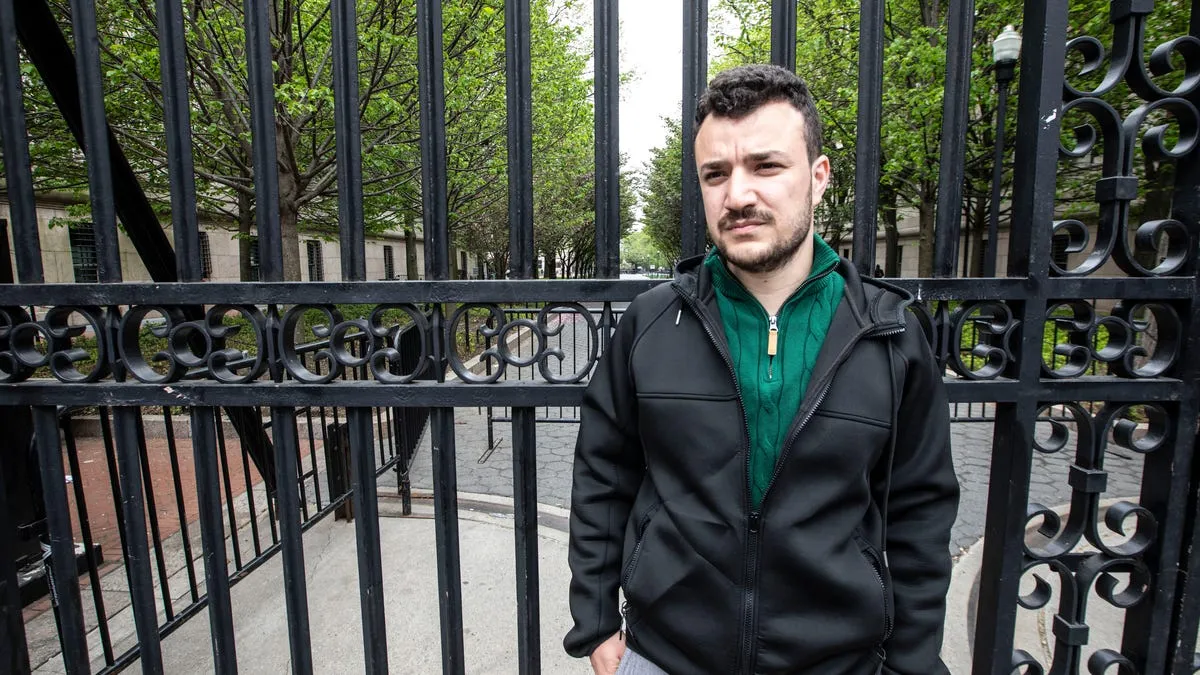
The recent detention of a Palestinian graduate student at Columbia University has sparked significant discussion regarding U.S. immigration policies, particularly in relation to President Donald Trump's administration. This incident appears to be one of the first concrete actions taken by the administration to fulfill its promise to deport foreign students associated with the pro-Palestinian protest movement.
On Saturday, U.S. Department of Homeland Security agents arrested Mahmoud Khalil, a prominent figure in last year’s pro-Palestinian protests at Columbia University’s School of International and Public Affairs. Four fellow students, including undergraduate student Maryam Alwan, confirmed the arrest, expressing concerns about potential reprisals if they revealed their identities.
Khalil has been an essential negotiator for the pro-Palestinian student protesters, who established a tent encampment on Columbia's campus last year. His detention marks a troubling development in the ongoing saga of U.S. immigration enforcement, particularly concerning students involved in activism.
The backdrop to this situation includes the tragic events of October 7, 2023, when Hamas executed an attack on Israel, followed by a subsequent Israeli assault on Gaza. These events ignited months of pro-Palestinian protests across U.S. college campuses, including Columbia University, creating a complex environment for students advocating for their beliefs.
A spokesperson for Columbia University stated that the institution is legally prohibited from disclosing information about individual students, including Khalil. Meanwhile, representatives from the Department of Homeland Security and the Department of State, which oversees the visa system, did not respond to inquiries regarding the detention.
In an interview with Reuters just hours before his arrest, Khalil expressed concerns about being targeted by the government, particularly by conservative pro-Israel groups. He indicated that the Trump administration had recently announced the cancellation of approximately $400 million in government contracts and grants awarded to Columbia University. This decision was reportedly motivated by allegations of antisemitic harassment occurring at and near the university's Manhattan campus.
Khalil questioned what further actions Columbia could take to satisfy Congress or the government, given that the institution had previously called in police to arrest protesters and disciplined several pro-Palestinian students and staff. He stated, "They basically silenced anyone supporting Palestine on campus, and this was not enough." This sentiment reflects a broader concern that the Trump administration is using the pro-Palestinian protests as a scapegoat for a wider agenda that targets higher education, particularly within the Ivy League.
Maryam Alwan, a senior at Columbia who has protested alongside Khalil, articulated her horror at the situation, emphasizing that the Trump administration is effectively dehumanizing Palestinians. She expressed deep concern for Khalil, noting that he is a legal resident of the United States, and feared that his detention could signal the start of more aggressive actions against students involved in advocacy.
As of Sunday, Khalil remained in custody, and the specific grounds for his detention by DHS agents were not immediately clear. The situation continues to evolve, raising questions about the implications for foreign students engaged in political activism within U.S. educational institutions.